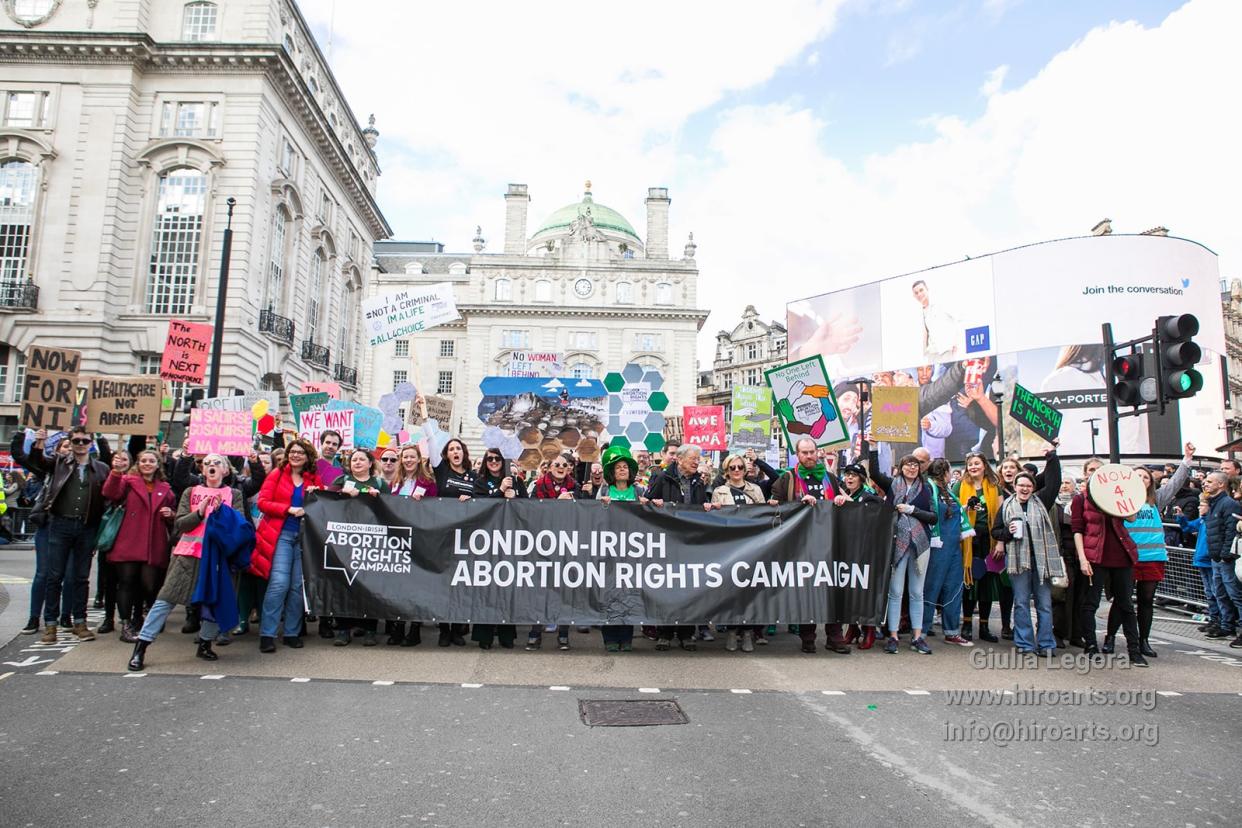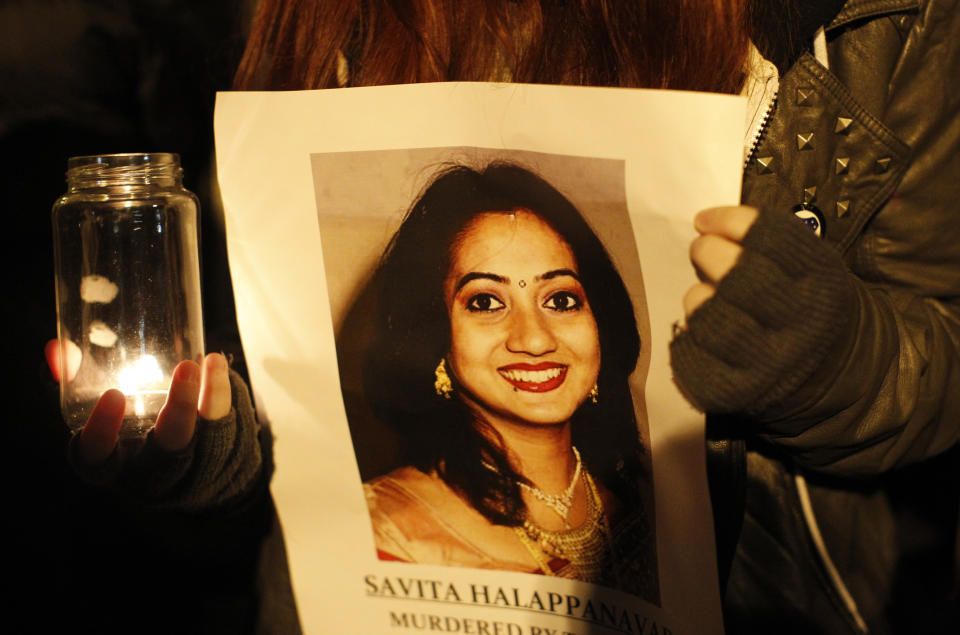These women are suing the government over abortion rights in Northern Ireland

The British government is being sued over its failure to change the law on abortion in Northern Ireland.
Downing Street has come under increasing pressure over the issue during the last two and a half years, which has seen Northern Ireland without a functioning government.
Now campaigners have launched a judicial review to try and force the government to legislate so that women who have pregnancies resulting from rape, or women with fatal foetal abnormalities, can access free, safe and legal abortions.
“Women in Northern Ireland are the only people across England, Ireland, Scotland and Wales who are now without access to healthcare, and not just without it but at risk of going to prison for accessing it,’ Cara Sanquest, co-founder of the London-Irish Abortion Rights Campaign, told Yahoo News UK.
“Our premise is to use the courts to force the government to take action on abortion in Northern Ireland in light of the fact that it’s clearly a breach of human rights.”

Currently Northern Ireland has some of the strictest abortion laws in the world.
Abortion is illegal in almost all circumstances with no exceptions in the case of rape or incest. The punishment for the woman undergoing an abortion and for an individual assisting her can be life in prison.
The UN ruled last year the UK Government is violating the rights of women in Northern Ireland by denying them the right to abortions.
Last month, MPs in Westminster voted overwhelmingly to support an amendment tabled by Labour MP Stella Creasy requiring the government to extend abortion rights in Northern Ireland if the Stormont Assembly does not reconvene before 21 October.
Northern Ireland has been without a government for two and a half years after talks to reconvene the Assembly stalled.

However the battle is far from won.
“We're not dropping it. At this stage we don't see this as game over. We’re absolutely delighted about what's happened and we’re holding our breath until October,’ Cara said.
“But until women are actually getting abortions we don't plan on dropping the case.”
Cara worked on the London-Irish Abortion Rights Campaign’s judicial review after playing a role in the movement to legalise abortion in the Republic of Ireland.
She said the case of Irish woman Savita Halappanavar, who died of septicaemia after being denied an abortion despite the fact she was already miscarrying, spurred her into campaigning for women’s abortion rights.
“I'm Irish and have identified as pro-choice for a while,” Cara said.

“I was in college when Savita Halappanavar died in Ireland after being denied an abortion for a wanted pregnancy.
“For me and a lot of my friends that was a real shocking moment and something changes inside of you when you've lived through something like that in your own country.
“It could have been me or any of my friends or family, or any of us in the future.
“It was really shocking that someone living in our country with a wanted pregnancy dying a completely preventable death.”
An UK Government spokesperson told Yahoo News UK: "The Government has been clear that its preference would be for a restored Executive and functioning Assembly to take forward any reform to abortion law in Northern Ireland.
"However, the Government also recognises the strength of feeling expressed by both Houses of Parliament in voting through this section of the Northern Ireland (Executive Formation etc) Act 2019 and placing this duty on the Government to deliver regulations to provide for access to abortion in the absence of devolved government in Northern Ireland.
"We recognise there are a range of sensitive policy issues that need to be carefully worked through.
"We will work to take all necessary steps between now and 21 October 2019, to ensure that, if the Executive has not been restored by that date, we are ready to implement regulations that give effect to the recommendations of the 2018 CEDAW Report by 31 March 2020.
"The health and safety of the women affected, and clarity for medical professionals, will be at the forefront of our approach."


